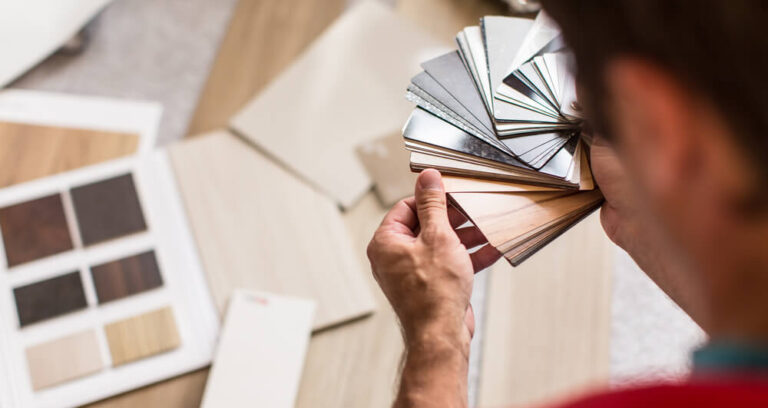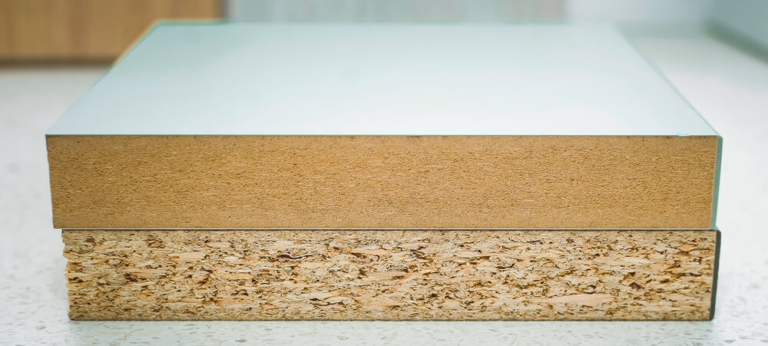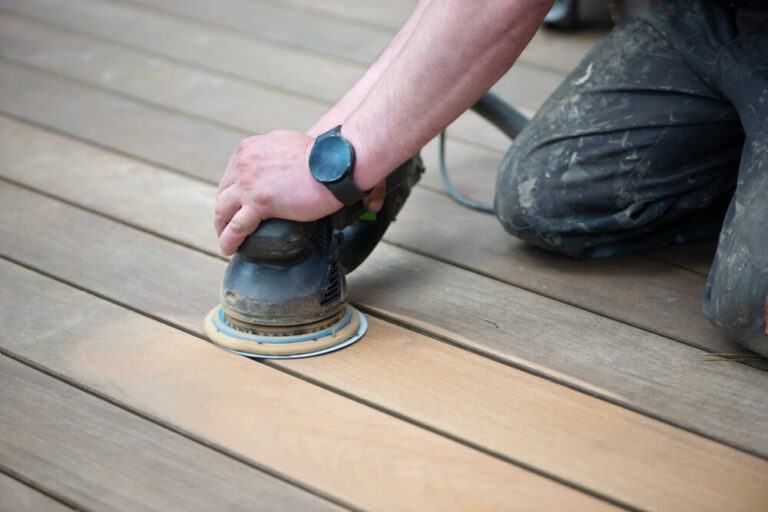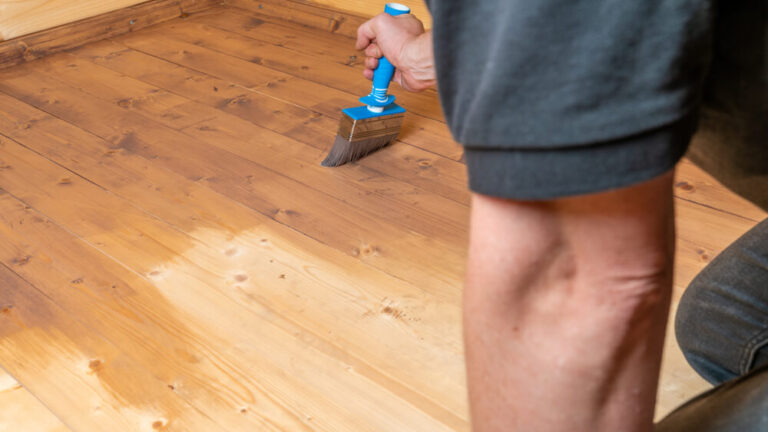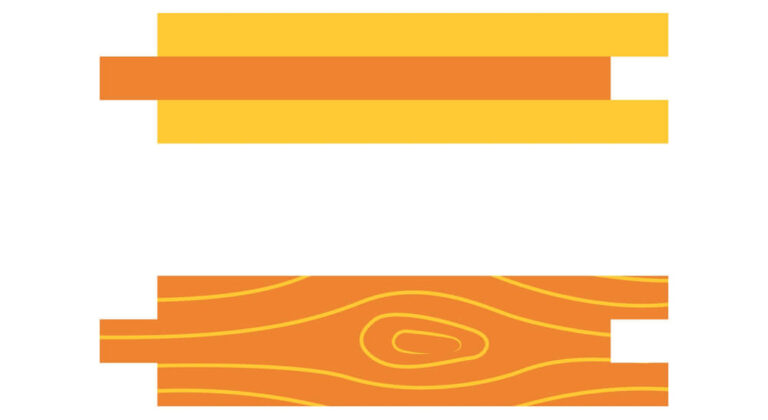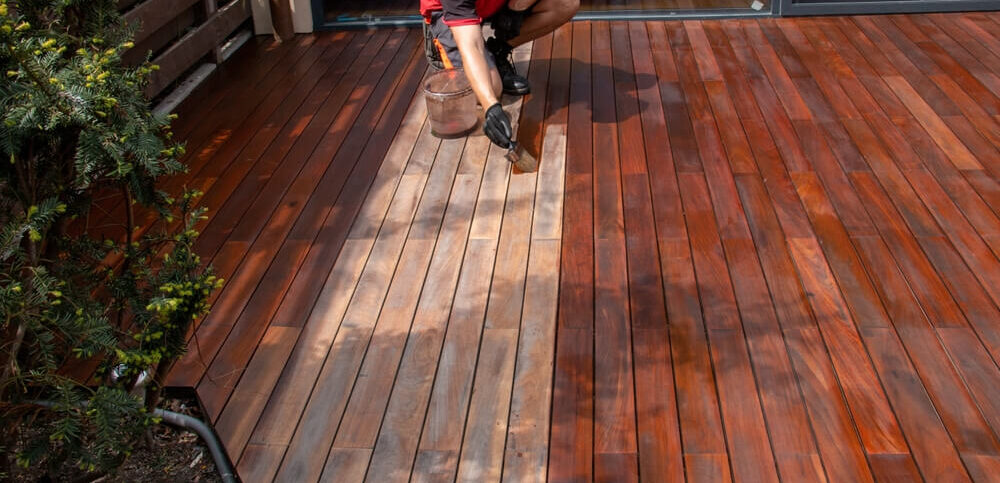
Hardwood floors have graced homes for centuries, offering warmth, elegance, and timeless beauty. But when it comes to choosing your wooden floor, homeowners are faced with a critical decision: prefinished Vs. unfinished hardwood floors. Each option comes with its own set of advantages and considerations, impacting not only the aesthetic appeal but also the installation process and long-term maintenance.
Being hardwood flooring experts, we will guide you through the details of prefinished and unfinished hardwood floors, exploring their characteristics, benefits, drawbacks, and factors to consider when making the right choice for your space.
What Are Prefinished Hardwood Floors?
Prefinished hardwood flooring refers to flooring materials that have undergone the finishing processes, including sanding, staining, and coating, in a controlled factory environment before being delivered for installation. These prefinished wood planks are ready for use immediately upon arrival at the installation site. more consistent and durable coating compared to on-site finishes. Overall, prefinished hardwood floors are a popular choice for those seeking a balance between aesthetics, convenience, and durability in their flooring solutions.
Pros of Prefinished Floors
Quick Installation
Installation is quicker and less disruptive, as sanding and finishing are eliminated. You can walk on your new floor almost immediately!
Reduced mess and odor
No dust bunnies or lingering varnish smells to contend with. Your home stays cleaner and healthier during installation.
Durable
Factory finishes are often tougher than site-applied ones, offering superior scratch and stain resistance.
Wider variety
Prefinished floors come in a vast array of colors, species, and styles, catering to diverse tastes.
Cost-effective
While the material itself might be slightly pricier, the overall installation cost is often lower due to reduced labor.
Cons of Prefinished Floors
What are the disadvantages of prefinished hardwood floors?
Limited customization
You’re restricted to the pre-existing stains and finishes offered by the manufacturer.
Repair challenges
Scratches or dents can be tricky to fix without refinishing the entire section.
Beveled edges
Prefinished planks often have slight bevels to hide imperfections, which some find aesthetically unpleasing.
What Are Unfinished Hardwood Floors?
Unfinished hardwood flooring is a type of flooring material that is installed in its raw, untreated state, with the finishing processes taking place on-site after the planks are laid down. Unfinished hardwood floors allow for greater customization and flexibility during the finishing stages. While the installation of unfinished wood floors requires additional time due to the on-site finishing processes, it offers a unique advantage of customization.
Pros of Unfinished Floors
Unlimited customization
Choose any stain, sheen level, or even custom distressing techniques to create a floor that’s uniquely yours.
Repair ease
Scratches and dents can be sanded and refinished in localized areas, preserving the original patina.
No bevels
Enjoy a smooth, seamless surface that showcases the natural beauty of the wood.
lower material cost
Unfinished planks can be more affordable than their prefinished counterparts.
Cons of Unfinished Floors
Installation complexities
Sanding, staining, and sealing require skilled labor, translating to longer installation times and potentially higher costs. Also be prepared for dust, fumes, and noise during the finishing process.
VOC concerns
Oil-based finishes release volatile organic compounds (VOCs) that can irritate some people.
Limited use during installation
You’ll need to wait for the finish to cure before moving furniture back in.
Prefinished Vs Unfinished Hardwood Floors: Major Differences
Prefinished and unfinished wood flooring represent two distinct options for homeowners, each with its own set of characteristics, advantages, and considerations. Understanding the major differences between prefinished and unfinished hardwood floors is crucial for making an informed decision that aligns with individual preferences and project requirements.
Finishing Process
The key distinction lies in the finishing process. Prefinished hardwood floors are factory-finished, with sanding, staining, and coating occurring in a controlled environment before the planks reach the installation site.
In contrast, unfinished hardwood floors are installed raw, and the finishing processes take place on-site. This allows for greater customization as homeowners can choose the stain color and finish type during installation.
Installation Time
One of the primary advantages of prefinished hardwood is its time efficiency. The flooring is ready for immediate use upon installation, saving time compared to the extended timeline required for on-site finishing.
Unfinished hardwood floors demand more time during installation due to the additional steps of sanding, staining, and coating on-site. This can extend the overall project timeline but allows for a more personalized finish.
Customization Options
Prefinished: While prefinished floors offer a variety of stain colors and finishes, customization options are somewhat limited compared to unfinished hardwood. Homeowners may have to choose from a predetermined selection.
Unfinished: Unfinished hardwood provides extensive customization possibilities. Homeowners can work with flooring professionals to achieve a specific color, sheen level, or finish type that aligns with their vision and complements the design of the space.
Seam Visibility
The seams between prefinished planks may be more noticeable, especially in older homes with uneven subfloors. The factory finishing process can highlight irregularities in the floor structure.
On-site finishing allows for a more seamless appearance, as the finishing processes can help conceal seams and create a smoother, more uniform surface.
Durability
Prefinished floors often feature durable, factory-applied finishes that provide a consistent and protective layer against wear, scratches, and moisture.
While the durability of unfinished floors depends on the quality of on-site finishing, the customization process allows for the application of high-quality sealants, enhancing the longevity of the hardwood.
Research shows that the lifecycle of prefinished hardwood floors is more than the unfinished ones.
On-Site Disruptions
The factory finishing process minimizes on-site disruptions, as there is less dust, odor, and noise during installation.
On-site finishing generates dust and odors, requiring proper ventilation and possibly temporary relocation during installation.
FAQs
What Is An Advantage Pre Finished Flooring Has Over Unfinished Flooring?
Prefinished flooring has the advantage of time efficiency. With factory-applied finishes, prefinished floors are ready for immediate use, eliminating the need for on-site sanding and finishing. This makes them a quicker and more convenient option for homeowners seeking a faster installation process.
Are Prefinished Floors Better?
The superiority of prefinished floors depends on individual priorities. Prefinished floors offer time efficiency and durable factory-applied finishes. However, if extensive customization is crucial, unfinished floors might be preferred for their flexibility in choosing stain colors and finishes during on-site installation.
Is It Better To Buy A Prefinished Or Unfinished Hardwood Floor?
The choice between prefinished and unfinished hardwood floors depends on personal preferences. Prefinished floors are convenient with immediate installation, while unfinished floors offer more customization options. Consider project timelines, desired aesthetics, and the willingness to manage on-site finishing when making a decision.
How Long Do Prefinished Hardwood Floors Last?
The longevity of prefinished hardwood floors depends on factors like wood quality, maintenance, and wear. With proper care and maintenance, prefinished hardwood floors can last for several decades. Regular cleaning, avoiding excessive moisture, and using protective pads on furniture can contribute to their durability.
Does Prefinished Hardwood Scratch Easily?
Prefinished hardwood floors are generally resistant to scratches due to the protective coatings applied during the factory finishing process. However, their resistance depends on factors like the hardness of the wood species and the quality of the finish. Regular maintenance, such as using area rugs and furniture pads, can help prevent scratches.
Which Hardwood Floors Last Longest?
The durability of hardwood floors is influenced by factors such as wood species, finish quality, and maintenance. Hardwood species known for high hardness, like oak or hickory, coupled with a durable finish, contribute to longer-lasting floors. Regular cleaning, proper maintenance, and avoiding excessive wear are essential for longevity.
Do I Need To Seal Prefinished Hardwood Floors?
Prefinished hardwood floors come with factory-applied sealants, eliminating the need for additional sealing upon installation. Homeowners should follow manufacturer guidelines for maintenance but generally, prefinished floors do not require post-installation sealing. Regular cleaning and proper care are sufficient to preserve the finish.
Also Read: hardwood floor sealers
When Should You Not Install Hardwood Floors?
Hardwood floors are not recommended in areas prone to excessive moisture, such as basements and bathrooms. Additionally, in spaces with unpredictable temperature and humidity levels, like unregulated sunrooms, hardwood may not be the ideal choice. Consider alternative flooring options for these environments to prevent potential issues like warping or cupping.
Can Prefinished Hardwood Be Refinished?
Prefinished hardwood floors can be refinished, but the process is typically more challenging than with unfinished floors. The factory-applied finishes may require specialized techniques, and there’s a limit to the number of times they can be refinished. Consult with flooring professionals to assess the condition and feasibility of refinishing prefinished hardwood floors.
How Much Does Hardwood Flooring Cost?
The cost of hardwood flooring can vary widely based on several factors such as the type of hardwood, quality, installation method, and location. On average, the cost per square foot of hardwood floors ranges from $3 to $12 for materials, and installation can add an additional $3 to $8 per square foot. Exotic hardwoods or high-quality finishes may increase the cost.
Conclusion
Choosing between prefinished and unfinished hardwood floors depends on individual preferences, project timelines, and budget considerations. While prefinished floors offer time efficiency and durability, unfinished floors provide greater customization options. Ultimately, the decision should align with the homeowner’s aesthetic vision and practical requirements for the space.


